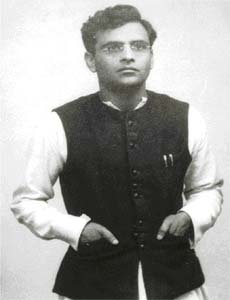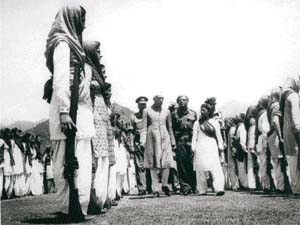
Remembering the freedom fighter on his 15th death anniversary at a function here, Brig. Harjit Singh (retd) recalled that Sher Jung dedication to the country was unique.
The 1904 born was not only a member of Bhagat Singh’s Hindostan Socialist Republic Army, suffered imprisonment for 14 years, but joined the Akali’s Jaito agitation in 1923, something for which he underwent 3 months of imprisonment when just a 17 year old.
To dislodge the rule of Kings and prices, Jung was part of the Praja Mandal movement against the king of Sirmaur.
Not resting on the laurels of Independence in 1947, Sher Jung raised two battalions of Kashmir National Militia and fought along with Indian army against Pakistani raiders in Kashmir.

He was conferred the rank of colonel for his military acumen in March 1948.
From 1953 to 1961, he led guerilla warfare against Portuguese in Goa. Later, in 1967, he was part of Mukti Vahini led guerilla warfare against East Pakistan army in Bengal.
Reading out excerpts from his book Sher Jung: The Warrior Son of India, retired bureaucrat and president of HPPG Shakti Singh Chandel gave a brief account of his undaunted courage with which he dared the might of the British rulers.
In 1929 Chandra Shekhar and Bhagvati Charan Vohra had planned to forcibly free Bhagat Singh and his associates from Central Jail, Lahore, by way of group attack. Sher Jung was assigned the task to loot Ahmedgarh train and buy weapons with the looted money.
On 15 October 1929, he did attempt to loot the Ahmedgarh train but soon “Wanted Dead or Alive. Reward Rs. 30,000. A crack shot.†posters went up in nearly all cities and towns.
He laid low disguised in different identities but on the directions from his father, Jung surrendered before the police.
He was tried and sentenced to death but it was later reduced to life-term.
After Independence, Jawaharlal Nehru had made him in charge of all the refugee camps in Delhi, something which he carried out with great commendation said Chandel.
Prof. Madan Sharma recalled the genius of Sher Jung who remained an eternal rebel. Though the freedom fighter left school when in 4th class, yet he went onto master English, German, Urdu, Farsi, Bengali and Hindi.
Sher Jung authored a number of books which included as Tryst with Tigers, Ramblings in Tigerland, Gunlore, Ek aur Anek Kshan (poems), Prison Days, Orake Parina (Withered Leaves), and Lorja (1937).
He also wrote Karl Marx and his Life and Inklab Russ ka Itihas.
His translation of Fredrich Nietzche’s Thus Spake Zarthustra from German into Hindi is considered one of the best.
Demanding naming of a wildlife sanctuary after the multifaceted personality, eminent naturalist Kr Dushyant Singh from Dhami said, “Jung was in the forefront of tiger conservation soon after World Wild Life Fund launched a project to save the tiger in 1972.
Col. PV Singh, a member of HPPG lamented that Sher Jung today was not even remembered in home state Himachal and forgotten in India. Seeking installation of his statues at prominent places, naming of a road after him he added, “a grateful nation must not forget its war heroes, martyrs and freedom fighters. They are our inspiring beacons for posterity.â€
Sher Jung passed away in Delhi on December 15, 1996.
As Editor, Ravinder Makhaik leads the team of media professionals at Hill Post.
In a career spanning over two decades through all formats of journalism in Electronic, Print and Online Media, he brings with him enough experience to steer this platform. He lives in Shimla.

